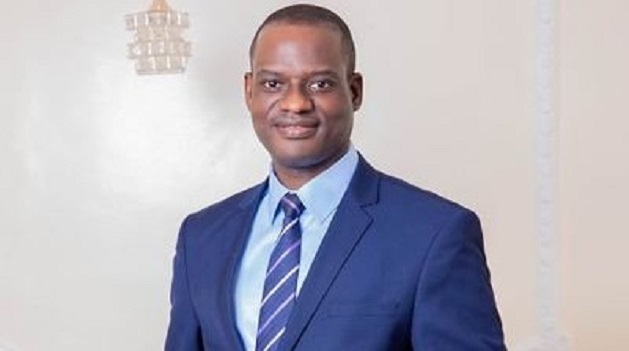General News
SERAP Asks National Assembly to Drop Bill to Jail Nigerians who Fail to Vote

Socio-Economic Rights and Accountability Project (SERAP) has urged Godswill Akpabio, Senate president, and Tajudeen Abbas, speaker of the House of Representatives, “to immediately withdraw the oppressive bill which contains repressive provisions to jail any Nigerian of voting age for six months and/or impose a fine of N100,000 on them if they fail to vote in national and state elections.”

SERAP urged Akpabio and Abbas to instead “amend the Nigerian Constitution 1999 [as amended] and the Electoral Act 2022 to remove constitutional immunity for state governors and their deputies who commit electoral offences, including vote-buying, to facilitate the investigation and prosecution of perpetrators.”
SERAP also urged Akpabio and Abbas “to amend the Nigerian Constitution and the Electoral Act to explicitly prohibit the appointment of members of any political party as resident electoral commissioners (RECs) of the Independent National Electoral Commission (INEC).”
There is currently in the National Assembly a ‘Bill for an Act to Amend the Electoral Act 2022 to Make It Mandatory for All Nigerians of Majority Age to Vote in All National and State Elections and for Related Matters.’ The bill seeks to make voting compulsory and prescribes a six-month jail term or a fine of N100,000 or both for non-compliance.
In the letter signed by Kolawole Oluwadare, deputy director, SERAP at the weekend, the organisation said: “Jailing eligible Nigerians for deciding not to vote would be entirely inconsistent and incompatible with the letter and spirit of the Nigerian Constitution and the country’s international human rights obligations.”
SERAP said, “Rather than proposing bills that would severely punish Nigerians who may decide not to exercise their right to vote, the National Assembly ought to propose bills to remove constitutional immunity for governors and their deputies who commit electoral offences and undermine the integrity of the electoral process.”
According to SERAP, “The most effective way to solve the perennial voter apathy is to create a safe and conducive environment, combat the impunity of high-ranking politicians who commit electoral offences, and generally improve the electoral process to encourage the citizens to come out to vote, and not to send them to jail.”
The letter, read in part: “Should the National Assembly fails to drop the bill prescribing a six-month jail term for eligible Nigerians who decide not to vote in national and state elections, and should any such bill be assented to by President Bola Tinubu, SERAP would consider appropriate legal action to challenge the legality of any such law and ensure they are never implemented.”
“The idea of compulsory voting and jailing citizens for not voting is impracticable, unnecessary and unlawful. The right to vote is part of citizens’ right to participate in their own government and the choice of whether to exercise it is personal.”
“The right to vote includes the right not to vote. If the right to participation is a right of the citizen, she/he must be free to decide whether or not to exercise it.”
“Because the notion of a democracy exists by virtue of the consent of the citizens, voters must get to choose how they exercise consent, not be forced to the polls like ‘cattle to the slaughter.’”
“The National Assembly ought to propose bills to reduce the influence of money in politics, and encourage and not compel the exercise of the right to participation.”
“The proposed bill is a blatant violation of the right to political participation, which is guaranteed under section 14(1)(c) of the Nigerian Constitution, article 25 of the International Covenant on Civil and Political Rights and article 13 of the African Charter on Human and Peoples’ Rights to which Nigeria is a state party.”
“SERAP also urges you to amend the Nigerian Constitution and the Electoral Act to include explicit mandatory provisions on internet voter registration, and the use of modern technology, including in casting and counting, voter registration and systems for reporting results.”
“Amending the Nigerian Constitution and the Electoral Act to explicitly include the right of eligible Nigerians to vote and to vote securely would enhance the effective enjoyment of their right political participation and representative democracy.”
“It would rebuild public confidence in the ability of the National Assembly to effectively perform its constitutional responsibilities.”
“Any amendment of the Nigerian Constitution and the Electoral Act must include bills to address and punish governors and their deputies and their agents who commit electoral offences including voter suppression, voter intimidation and the destruction of polling units or theft of election materials.”
“It is important for the National Assembly to introduce and pass bills that would effectively rein politicians who continue to abuse the electoral rules to distort and undermine the right to participation with almost absolute impunity.”
“Removing constitutional immunity for governors and their deputies who commit electoral offences would address the brazen impunity for electoral and human rights crimes which frequently characterise the country’s elections.”
“The major problem facing the country’s democracy is the lack of respect for Nigerians’ right to participation and the concomitant lack of trust in election results. If citizens do not believe in the election process, then the entire system of democratic government becomes a questionable enterprise.”
“The crisis confronting Nigerian elections and lack of public trust and confidence in the electoral process can be addressed if the right of Nigerians to vote and to vote securely is explicitly recognized in the constitution as justiciable right.”
“Nigerians do not currently enjoy explicit right to vote and to vote securely. Although the Nigerian Constitution 1999 [as amended] provides in Section 14(1)(c) that, “the participation by the people in their government shall be ensured in accordance with the provisions of this Constitution”, this is not recognized as legally enforceable human right.”
“Nigerian election laws ought to be such that would give effect to the electorate’s will and uphold the popular mandate through clean, fair, and honest elections. The right to vote in a democracy is important because so many other matters depend upon its exercise.”
General News
FG to Introduce New Tax Credit Scheme to Replace Pioneer Status Incentive

As part of Nigeria’s ongoing tax reform efforts, the federal government is proposing a new investment-driven incentive framework aimed at addressing long-standing inefficiencies in the current Pioneer Status Incentive (PSI).

The new scheme, known as the Economic Development Incentive (EDI), is designed to stimulate real economic activity by tying tax relief directly to verifiable investments.
This was the focus of a keynote address delivered by Taiwo Oyedele, Chairman of the Presidential Committee on Fiscal Policy and Tax Reforms, at BusinessDay’s Policy Intervention Series held on April 22 in Lagos.
According to Oyedele, a close review of the Pioneer Status Incentive revealed structural flaws that have undermined its effectiveness. “Once granted Pioneer Status,” he said, “companies may import goods classified as ‘pioneer products’ tax-free, effectively allowing them to operate without tax obligations—even with minimal value addition to the economy.”
He further noted that while the PSI was initially designed to encourage investment, it created loopholes and ambiguities. For example, businesses often benefit from extended tax relief even after the designated holiday period ends.
“The assets used during the Pioneer period are essentially frozen in time,” Oyedele explained. “They’re treated as if acquired after the incentive ends—meaning companies only start claiming deductions once the holiday period is over. This creates long-term tax advantages that go well beyond the policy’s original intent.”
He also pointed out that the PSI makes it difficult for the government to quantify revenue forgone and for investors to clearly assess the value of the incentive—undermining transparency on both sides.
The Economic Development Incentive
The proposed Economic Development Incentive is a departure from the one-size-fits-all model. Instead, it’s structured around priority sectors—primarily manufacturing, followed by services and infrastructure—that have strong multiplier effects on the economy.
Another key design feature is the introduction of minimum investment thresholds to ensure only scalable and impactful projects qualify. For instance, companies operating in capital-intensive sectors like utilities would need to invest at least N200 billion to be eligible for the tax credit.
“The EDI is about real impact,” Oyedele said. “It’s time-bound, sector-targeted, and tied to actual capital deployment—not just approval on paper.”
Unlike blanket tax holidays, the EDI grants companies a 5 percent annual tax credit over five years—totaling 25 percent of the value of their qualifying investment. Importantly, this is in addition to existing capital allowances, making the scheme particularly attractive to long-term investors.
Crucially, approval under the scheme does not mean the investment has already been made. It only confirms that the company has a verified plan. The incentive kicks in only after capital is actually deployed, and all investments are subject to inspection by the Industrial Inspectorate Division.
Oyedele broke down how the system works using practical examples:
If a company invests N10 billion in Year 1, it earns a N500 million tax credit each year for five years. If an additional N5 billion is invested in Year 2, that new investment begins its own five-year 5 percent cycle—N250 million annually until Year 6.
If the company continues investing progressively, each round of investment starts a new five-year cycle of tax credits, potentially extending the benefit period up to 10 years.
For instance, if a business has a N15 million tax liability in a given year and applies N25 million in tax credits, its liability is wiped out entirely, with the N10 million balance rolled over to subsequent years.
However, there’s a catch: if a company fails to follow through on its investment plan or halts capital deployment, unused credits are forfeited. This accountability mechanism ensures that only consistent and credible investments are rewarded.
General News
FlashChange Partners Ruth Foundation to Empower Vulnerable Children in Alimosho with Skill Acquisition

In an inspiring initiative to uplift the next generation, FlashChange and Ruth Foundation have successfully implemented the “Orphanage Skill Acquisition Assembly 2.0 program,” a skills empowerment program for vulnerable children in Alimosho, Local Government Area of Lagos state.

The five-day programme, which began on Monday, April 14, was created to equip vulnerable children aged 4 to 18 years with essential life skills such as financial literacy, fashion design, photography, creative arts, cooking, and leadership development
Speaking at the closing ceremony of this year’s edition of the programme, the Chief Operating Officer, Flashchange, Olamide Ajibola said, “We are delighted to be part of this life-changing initiative.
“At FlashChange, we believe that children are the heartbeat of every community, by investing in their development today, we are not just shaping the future of individuals but nurturing future leaders, creators, and change-makers that would make a positive contribution to the growth and development of the society in the near future.”
“Initiatives of this nature gladdens our heart and we are open and willing to participate in them at any time. In the coming months, we hope to do more in that area as our own little way of improving society. This is in line with our CSR pillars, which include human capital development.”
Ajibola appreciated the benefitting children for accepting to be part of the life changing training which has the capacity to catapult them to a brighter future. The facilitators were also commended for impacting the children with the skills and knowledge to help shape their lives.
The founder Ruth Foundation, Itunuoluwa Ruth Da-Silva, in her remarks, expressed the foundation’s deepest appreciation to partnering organizations like FlashChange for believing in the vision and throwing their full weight behind it.
She said, “It will interest you to know that 153 vulnerable children benefitted from the Orphanage Skill Acquisition Assembly 2.0 programme and the training ran simultaneously at Compassionate Orphanage home; Precious Pearl Orphanage; Little Saints Orphanage and House of Mercy Orphanage respectively. Providing the children access to knowledge and skills early in life to create a ripple effect that can transform the entire community.”
The Chief Marketing Officer, FlashChange Jesujoba Ojelabi commended Ruth foundation for the initiative and urged the children to take the skills learnt seriously, as it has the capacity to change their lives for good.
He said, “As a company, we would be proud to lend our support to the foundation whenever we are called upon to do so in the future. My candid advice to you children would be this, to be great ambassadors of this initiative, you need to continuously put to practice the skills and knowledge you have acquired from the programme. We are indeed proud of you all and the success stories recorded so far.”
To support the continuous development of the children the following items were donated; electric sewing machine, cake mixer; packs of Yeye yarn, packs of pins, some stitch markers, scissors, measuring scale, make-up kit box filled with make-up tools among several others.
FlashChange and Ruth Foundation therefore urge community leaders, government organizations, private sector partners, and stakeholders to support programmes of this nature aimed at equipping children with the skills they need to thrive in a world that is evolving quickly.
General News
EFCC Clarifies SCUML Certificate Misuse amid CBEX Ponzi Scheme Scandal

Economic and Financial Crimes Commission, EFCC, has dismissed the claims that the defunct digital asset trading platform, CBEX, was registered with its Special Control Unit against Money Laundering, SCUML.

However, EFCC stated that ST Technologies and not CBEX registered with SCUML, saying that the certificate didn’t imply clearance by the Commission.
The clarification comes after Lesley Kessy Oviritsa, one of the victims of the CBEX Ponzi Scheme said she fell prey to CBEX after seeing and verifying its CAC and SCUML Certificate.
Oviritsa claimed they had no reason to suspect foul play, especially since they claimed their SEC certificate would be ready by May 2025.
Nigeria CommunicationsWeek reported how CBEX swept over N1.3 trillion from their investors’ accounts.
In a post on its official handle on X on Monday, EFCC said the Commission is not a clearing house or regulatory authority of online businesses.
The post read: “SCUML Certificate Is Not CLEARANCE BY EFCC.
“ST Technologies (not CBEX) registered with the Special Control Unit against Money Laundering, SCUML in line with Section 17 of the Money Laundering, (Prevention & Prohibition) Act, 2022.
“Registration is a statutory requirement for all Designated Non-Financial Businesses and Professions, DNFBPs, in Nigeria in consonance with Nigeria’s Anti-Money Laundering/ Control of Financing Terrorism, AML/CFT regime.
“The EFCC is not a clearing house or regulatory authority of online businesses.
“But financial fraud of any kind is the remit of the Commission, and it is committed to ensuring justice for victims of the CBEX scam.”

 Telecom2 days ago
Telecom2 days agoMTN Nigeria Takes Broadband Services to the Next Level with FibreX Launch

 News2 days ago
News2 days agoSERAP Files Lawsuit Against NBC Over Ban on Eedris Abdulkareem’s Protest Song Tell Your Papa

 Telecom1 day ago
Telecom1 day agoDigital Transformation Remains Africa’s Gateway to Economic Advancement – Adumike

 Telecom1 day ago
Telecom1 day agoPAFON 2.0: Experts Discuss Pathways to Boost Financial Inclusion in Nigeria

 General News1 day ago
General News1 day agoEFCC Clarifies SCUML Certificate Misuse amid CBEX Ponzi Scheme Scandal

 E-Financial1 day ago
E-Financial1 day agoCBN, NGX Group Defend Economic Reforms at Nasdaq

 E-Financial2 days ago
E-Financial2 days agoFCMB Group Redefines Corporate Storytelling with The Power Of The Group TVC

 General News1 day ago
General News1 day agoFlashChange Partners Ruth Foundation to Empower Vulnerable Children in Alimosho with Skill Acquisition


























